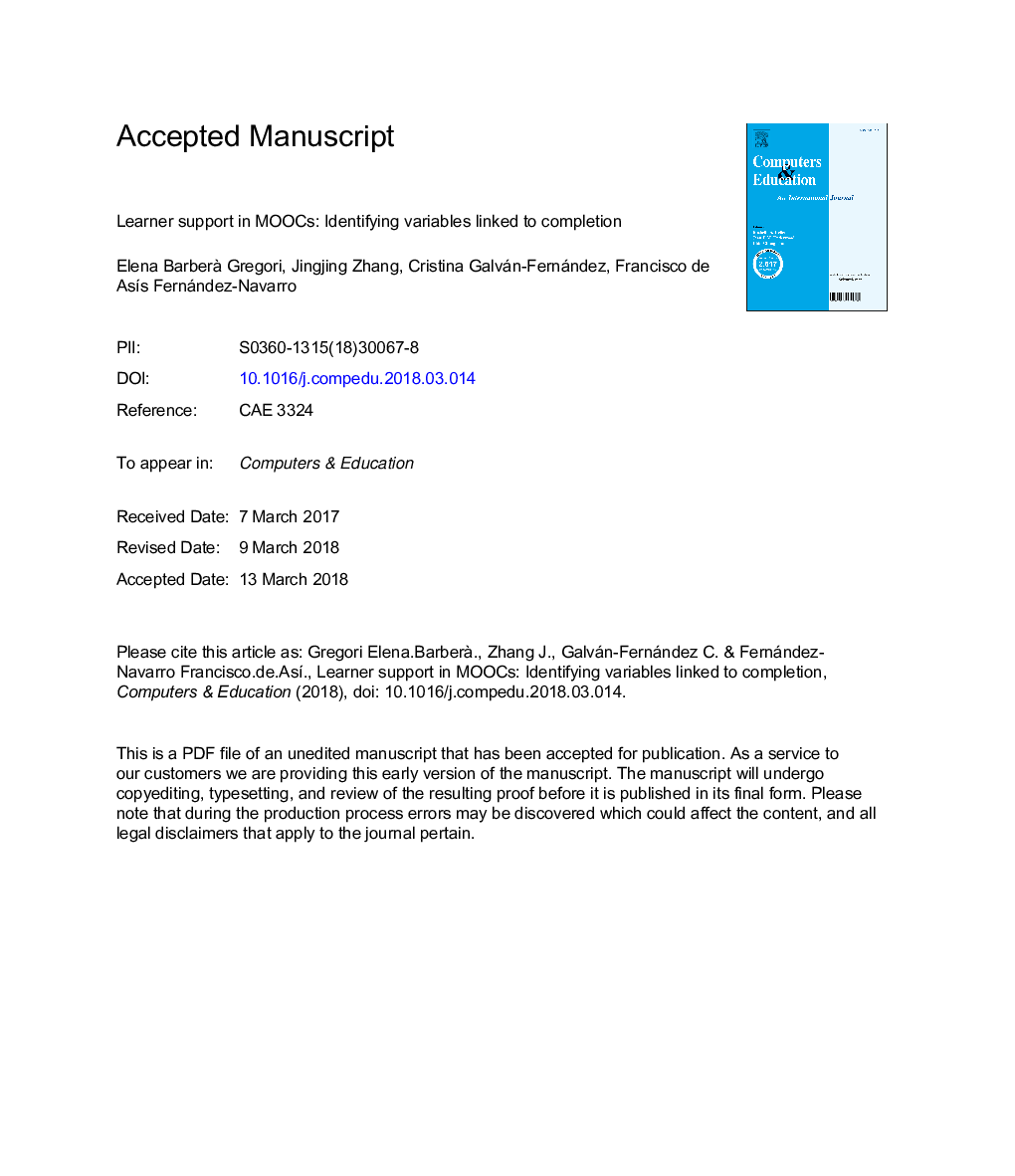| Article ID | Journal | Published Year | Pages | File Type |
|---|---|---|---|---|
| 6834704 | Computers & Education | 2018 | 26 Pages |
Abstract
This study investigated learner support strategies that enable the success and completion of Massive Open Online Courses (MOOCs). It examined five MOOCs categorised into three groups according to their pedagogical approach and used in different learning settings: formal MOOCs, conventional MOOCs and professional MOOCs. A total of 4,202,974 units of variables (student behaviours and MOOC features) were analysed using Semi-Supervised Extreme Learning Machine (SSELM) and Global Sensitivity Analysis. In this study, the use of SSELM was compared to the state-of-art models (e.g. ELM, KELM, OP-ELM, PCA-ELM), and SSELM yielded 97.24% accuracy. Using unlabelled students helped improve the learning accuracy for the model, which confirms that SSELM is a good model to predict completion in MOOCs, considering the difficulty of labelling students in such an open and flexible learning environment. The findings show that designers and teachers should pay special attention to their students during the second quartile of the course (independently of the type of MOOC). The teachers' presence during the course, his or her interactions with students and the quality of the videos presented are significant determinants of course completion.
Related Topics
Social Sciences and Humanities
Social Sciences
Education
Authors
Elena Barberà Gregori, Jingjing Zhang, Cristina Galván-Fernández, Francisco de AsÃs Fernández-Navarro,
